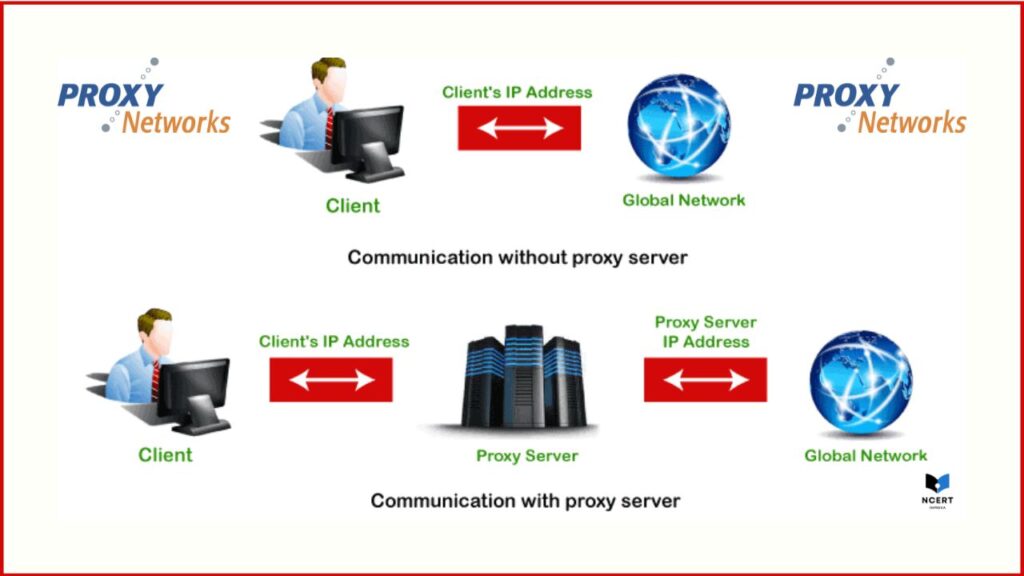In the modern online environment, internet safety and privacy are major issues for many online users. As we traverse an increasingly digital society, the need to protect our personal information and maintain anonymity online has reached critical levels. One effective solution for addressing these concerns is the use of proxy servers. So, what is a proxy server, and how do they function? This guide will take you through the necessary steps to establish your own proxy server while exploring the different advantages and categories of proxies available.
Whether you're looking to enhance your online privacy, bypass geo-restrictions, or elevate your gaming performance, grasping the concept of proxy servers can unlock a world of possibilities. From understanding the differences between proxies and VPNs to exploring how organizations employ proxies for cybersecurity, this article will equip you with the knowledge you need to formulate wise choices about your digital footprint. Join us as we delve into the setup process and uncover the many advantages that come with utilizing a proxy server.
Comprehending Proxy Servers Servers
Proxy serve as intermediaries between your system and the web. When you submit a call to reach a web page, the query firstly goes through the proxy, which forwards it to the final server. This implies your IP address is masked from the website you are visiting, and the site only sees the internet protocol address of the intermediary. This process allows individuals to enhance their digital privacy and safety while navigating the internet.
There are various forms of proxy servers, each with its unique functionalities and use cases. The most common kinds include HTTP proxies, which are used for online traffic; SOCKS servers, which can handle any kind of network traffic; and transparent proxy servers, which function without changing calls. Comprehending the variations between these proxy forms is important for selecting the right one for your requirements, whether for personal use or commercial applications.

Utilizing a proxy service provides several benefits, particularly regarding digital privacy and protection. By concealing your internet protocol address, proxies assist guard your information from servers and cyber attackers. They also offer additional features such as content filtering, blocking ads, and storing data, which can enhance navigating efficiency and protection. However, it is crucial to choose reliable proxy services to secure effective safety and minimize risks.
Advantages and Risks of Using Proxy Servers
Using proxies offers a variety of benefits that can improve your online experience. One of the primary benefits is improved privacy. Proxies can mask your IP address, making it more difficult for websites and services to monitor your online behavior. click of anonymity is particularly useful when retrieving sensitive data or when you want to avoid targeted advertisements. Moreover, proxies can provide access to geo-restricted material by rerouting your connection through nodes located in different regions, allowing you to enjoy streaming services and sites that may be restricted in your area.
Despite these benefits, there are inherent dangers associated with using proxy servers. One of the major concerns is safety, especially when using complimentary proxies. These services may log your activities or even inject malicious data into your connection, putting your personal data at risk. Moreover, not all proxies provide encryption, which is crucial for safeguarding your information from potential eavesdroppers. Therefore, it's essential to choose reputable proxy providers and be aware of their privacy policies to mitigate these concerns effectively.
Another crucial factor is the potential for slower internet speeds. While some proxies can improve performance in specific scenarios, others may cause lag due to their redirection methods. This can be particularly problematic for activities such as online gaming or streaming high-definition content. It's crucial to evaluate the type of proxy you select, as some options, like residential proxies, may provide better speed and consistency compared to free or public proxies, offering a more smooth user experience.
Opting for An Appropriate Proxy to Meet Your Needs
While choosing a proxy server, it becomes important to consider your specific requirements to secure optimal performance and security. Diverse types of proxies serve varied purposes, whether for surfing anonymity, streaming, or data scraping. For example, HTTP proxies often are ideal for web browsing, while SOCKS proxies deliver higher versatility for various types of traffic. Evaluate whether you want a residential proxy for a more genuine browsing appearance or a data center proxy for enhanced performance.
Furthermore, keep in mind the level of privacy and security you require. Proxies can differ in the encryption methods they provide, impacting your online safety and data protection. If accessing sensitive information, choose proxies that offer robust encryption. It is likewise essential to research the reputation of the proxy service to confirm they do not log your activity or sell your data.
In conclusion, consider the geographic needs of your activities. If you intend to bypass geo-restrictions for streaming or gaming, select a proxy that can successfully mask your IP address in the targeted region. Check user testimonials and testing results, as this can reveal how well a proxy performs under various conditions. By diligently assessing these factors, you can pick a proxy that satisfies your needs and boosts your online experience.
